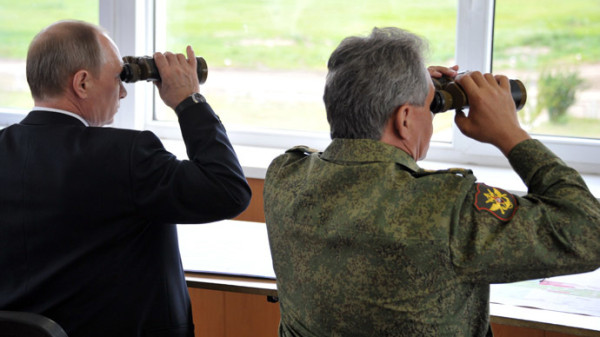Putin goes hard against spread of purist radical Islam through social media
By agha Iqrar Haroon
Development Observer for Central Asia and Eastern Europe
 With changing global scenario and uprising of radical Islamist groups in Middle East, the President of Russia Vladimir Putin has directed the Russian Interior Ministry to prepare a new strategy document for countering religious extremism being spread over the internet. Russian authorities are working on this new strategy document for capping extremism but core area of work is to keep an eye on Muslims extremist organisations those are allegedly spreading Salafism (Radical purist Islam tagging all non-Muslims as infidels and instigate to kill them) through forums, websites, twitting and other digital and social media tools.
With changing global scenario and uprising of radical Islamist groups in Middle East, the President of Russia Vladimir Putin has directed the Russian Interior Ministry to prepare a new strategy document for countering religious extremism being spread over the internet. Russian authorities are working on this new strategy document for capping extremism but core area of work is to keep an eye on Muslims extremist organisations those are allegedly spreading Salafism (Radical purist Islam tagging all non-Muslims as infidels and instigate to kill them) through forums, websites, twitting and other digital and social media tools.
Putin directs authorities to keep watching social media to cap spread of purist radical Islam
Majority of these forums are run from North America, Gulf States and South East Asia. Russian security circles claim that IP addresses of hate material digital media pages and forums were found near Turkey, Gulf States, South East Asia and in North America. However authorities deny this information officially. Since Russia media usually share only official information therefore nothing more is known who would be targeted first under this new strategy to cap social media activities. Russian media believes that Interior Ministry is working over new strategic document for:
Internet based organisations are main channel for spreading hate speeches against religions, dangerous information, sectarianism and instigating public against governments all over the Central Asia, eastern Europe and Federation of Russia. Strategic paper wants to counter the threat through intensive monitoring of the web and imposing traditional values on the young.
First draft of this strategy has already been presented to the Presidential Council for Human Rights and Russian media reported its key points as:
The strategy lists as primary threats “expansion from foreign territory of radical Muslim movements, non-traditional for Russia,” domestic highly-organized nationalist groups, football hooligans, illegal immigrants and certain foreign NGOs and religious groups.
Experts working on this strategy document see “involving the public in protests that are transformed into mass unrest” as the main scenario used by the radicals. The internet is mentioned as a main tool for the society’s radicalization and therefore the ministry wants to concentrate its efforts in the cyber-sphere.
The suggested tools for ideological and informational suppressing of extremism are a nationwide internet monitoring system together with new methods of access restriction to hazardous sites.
In addition, the police will launch a major counter-campaign on social networks and seek to attract various NGOs and other civil society institutions to the project, along with the internet service providers.
The campaign against extremism will also be waged offline. The ministry suggests to “recreate the system of education in the spirit of traditional spiritual, ethical and patriotic values inherent in Russia.” Another plan is to start special training courses for journalists so the mass media know the correct ways of covering the struggle against radicals. For this the ministry also needs support from major media outlets and NGOs.
Apart from direct opposition to the threat, experts working on document highlight the necessity for positive changes in society, such as harmonization of inter-ethnic and inter-religious relations. For this Russia needs a “full-pledged national identity” as well as the consolidated effort of all branches of power and all public organizations and civil society groups.
An important Human Rights NGO Sova is keenly observing the document to minimise the possibility of abuse of new strategy in future. Other NGOs are also invited to share their comment before this document is submitted to President Putin for final approval. Civil society organisations supported the strategy but criticized the excessively broad definitions for extremism and its manifestations, saying that broad definition can lead to future abuse of the law.
“If they are left as such, the state agencies would face an immense amount of work. There are things that are potentially dangerous and there are people and organizations that pose a real threat, the threat to human lives. They are worth the primary attention,” Verkhovsky was quoted as saying by the RBC news agency.
Another council member, Igor Borisov, has told the mass circulation daily Kommersant that in his view the concept was too harsh and needed rewriting in a more liberal key. He also added that the document needed some extra ideas, such as measures against using ethnic factors in various elections and referendums.
After consulting with Human Rights activists and legal experts the Interior Ministry will present the strategy to the Russian President.







